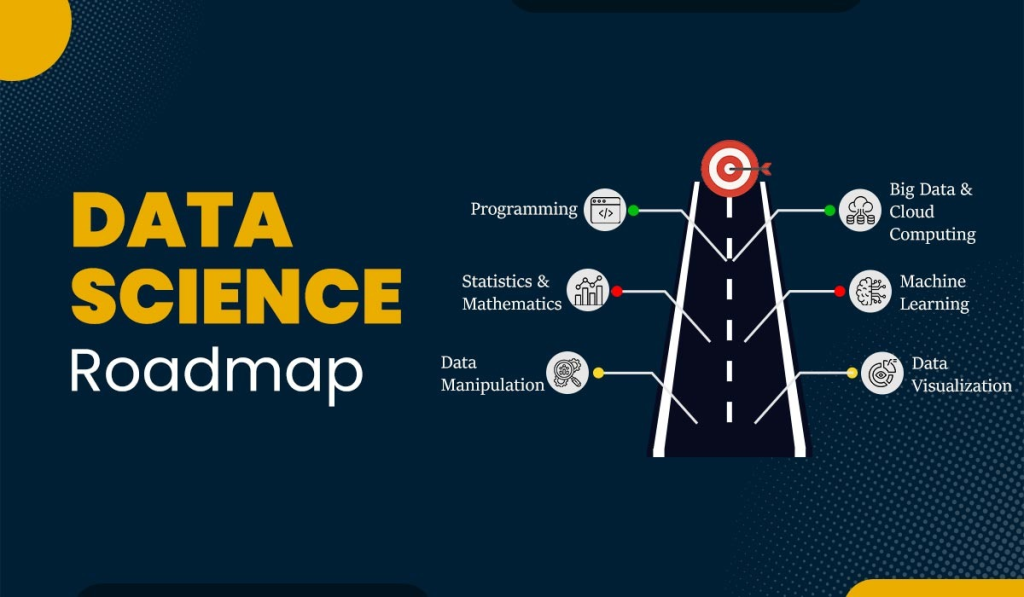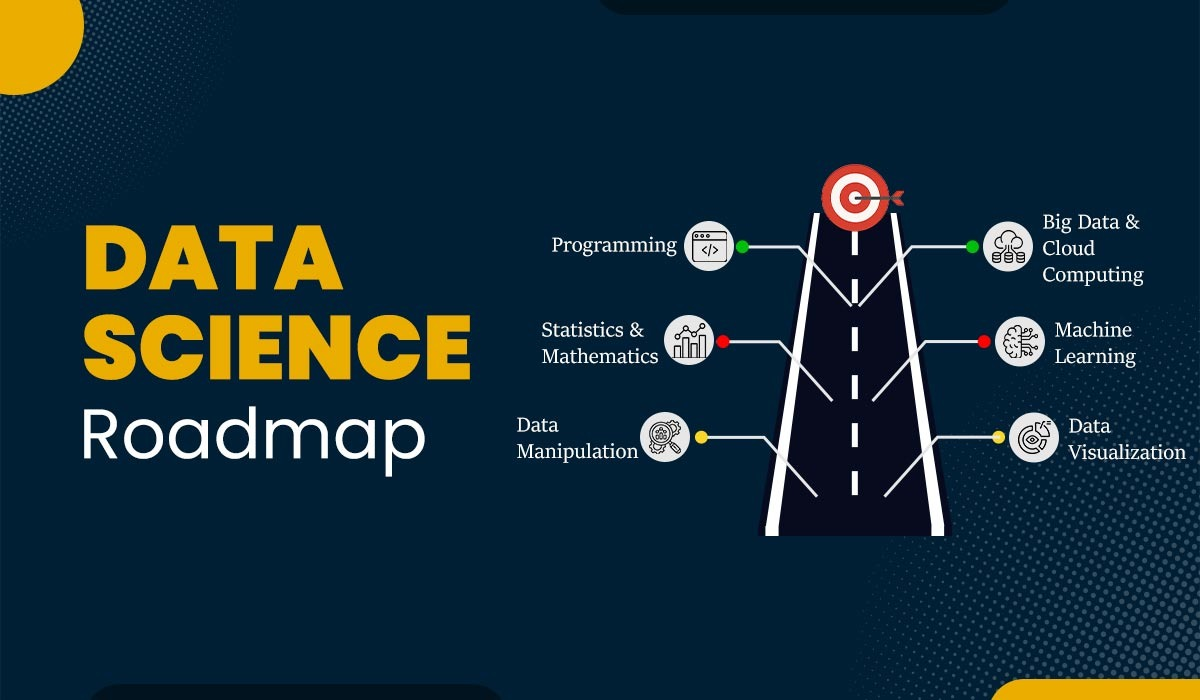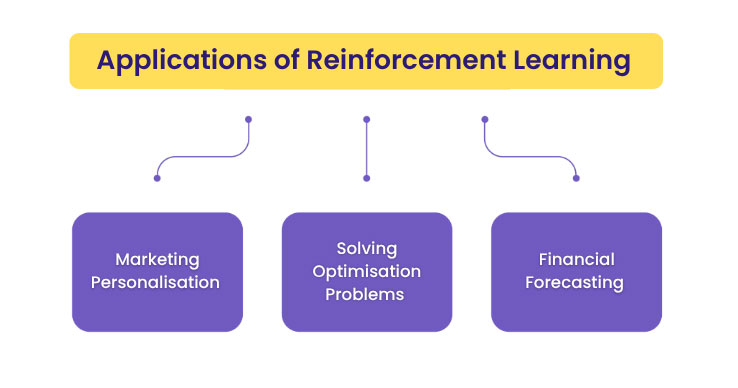The world is generating data faster than ever before, and companies across industries rely on data-driven insights to stay competitive. To become a successful data scientist in 2026, you need a strong foundation in mathematics, statistics, programming, and real-world problem-solving.

9 Data Science Learning Roadmap for Aspiring Data Scientists 2026
Here’s a structured learning roadmap for aspiring data scientists this year.
1. Build a Strong Mathematical Foundation
Mathematics is the language of data science. Without it, it’s hard to understand how algorithms work.
- Linear Algebra: Helps machines perform large-scale calculations using vectors and matrices.
- Calculus: Explains change and optimization—vital for machine learning models.
- Discrete Math: Builds logical thinking, which is essential for algorithms and problem-solving.
Think of math as the engine that powers your data science journey.
2. Probability & Statistics
Statistics is the backbone of data interpretation. It helps you validate insights and avoid guesswork.
- Probability distributions: Estimate outcomes (like the chance of rain).
- Hypothesis testing: Check if results are real or just random chance.
- Bayesian thinking: Update predictions as new information arrives.
With strong statistics, your decisions are backed by science, not intuition.
3. Programming Proficiency
Python is the go-to language for data science. You should focus on:
- Core Python: Data structures, loops, functions, error handling.
- Libraries: Pandas, NumPy, Matplotlib, Seaborn, Scikit-learn.
- Best Practices: Debugging, testing, writing clean code.
- Version Control: Git/GitHub for tracking and sharing work.
R is also great for statistical modeling, but Python dominates the industry.
4. Data Manipulation & EDA (Exploratory Data Analysis)
Raw data is usually messy. Learn how to clean, transform, and visualize it:
- Pandas & NumPy: Organize and manipulate datasets.
- Matplotlib & Seaborn: Create meaningful graphs and dashboards.
- Data Cleaning: Handle missing values, duplicates, outliers, and text formatting.
This stage teaches you to see the story behind the numbers.
5. Data Collection & Management
Understanding where data comes from is just as important as analyzing it.
- APIs: Use Python’s requests library to fetch structured data.
- Web Scraping: Extract website data with BeautifulSoup or Scrapy.
- Databases & SQL: Master queries, joins, indexing, and window functions.
- NoSQL & Big Data: Learn MongoDB, Redis, and basics of Spark for large-scale data.
This ensures you can work with both structured and unstructured data.
6. Machine Learning & Modeling
Once you’ve mastered data basics, move to ML.
- Supervised Learning: Linear regression, logistic regression, decision trees, random forests, XGBoost.
- Unsupervised Learning: K-Means clustering, PCA, dimensionality reduction.
- Model Evaluation: Metrics like RMSE, R², accuracy, precision, recall, and F1-score.
This is where you shift from analyzing data to predicting outcomes.
7. Deep Learning (Advanced Stage)
Deep learning powers cutting-edge AI.
- Neural Networks (NNs): Learn the basics of perceptrons and backpropagation.
- CNNs: Best for images.
- RNNs/LSTMs: Handle sequences like text and time-series.
- Frameworks: TensorFlow and PyTorch.
Even if you don’t specialize in AI, understanding deep learning gives you an edge.
8. Real-World Projects
Theory isn’t enough. You need hands-on projects to prove your skills:
- Churn prediction for telecom or banking.
- House price prediction.
- Sentiment analysis on social media.
- Fraud detection in financial data.
- Real-time object detection with YOLO.
Also, focus on soft skills like storytelling with data and explaining models in business terms.
9. Ethics & Data Privacy
A modern data scientist must follow ethical guidelines:
- GDPR & Data Privacy Laws
- Bias & Fairness in AI
- Transparency with Model Cards
Companies want professionals who balance innovation with responsibility.
Conclusion
Data science in 2026 is one of the most rewarding career paths, with high demand, global opportunities, and excellent pay. But success requires more than just learning tools—it’s about building a strong foundation, solving real problems, and constantly upgrading your skills.
If you’re serious about making a career in data science, platforms like Console Flare provide industry-focused training, mentorship, and placement support. With real projects and expert guidance, you’ll be ready to land high-paying roles in the data field. Enroll Data Science Course today from Console Flare to become successful data scientist in 2026.
For more such content and regular updates, follow us on Facebook, Instagram, LinkedIn




